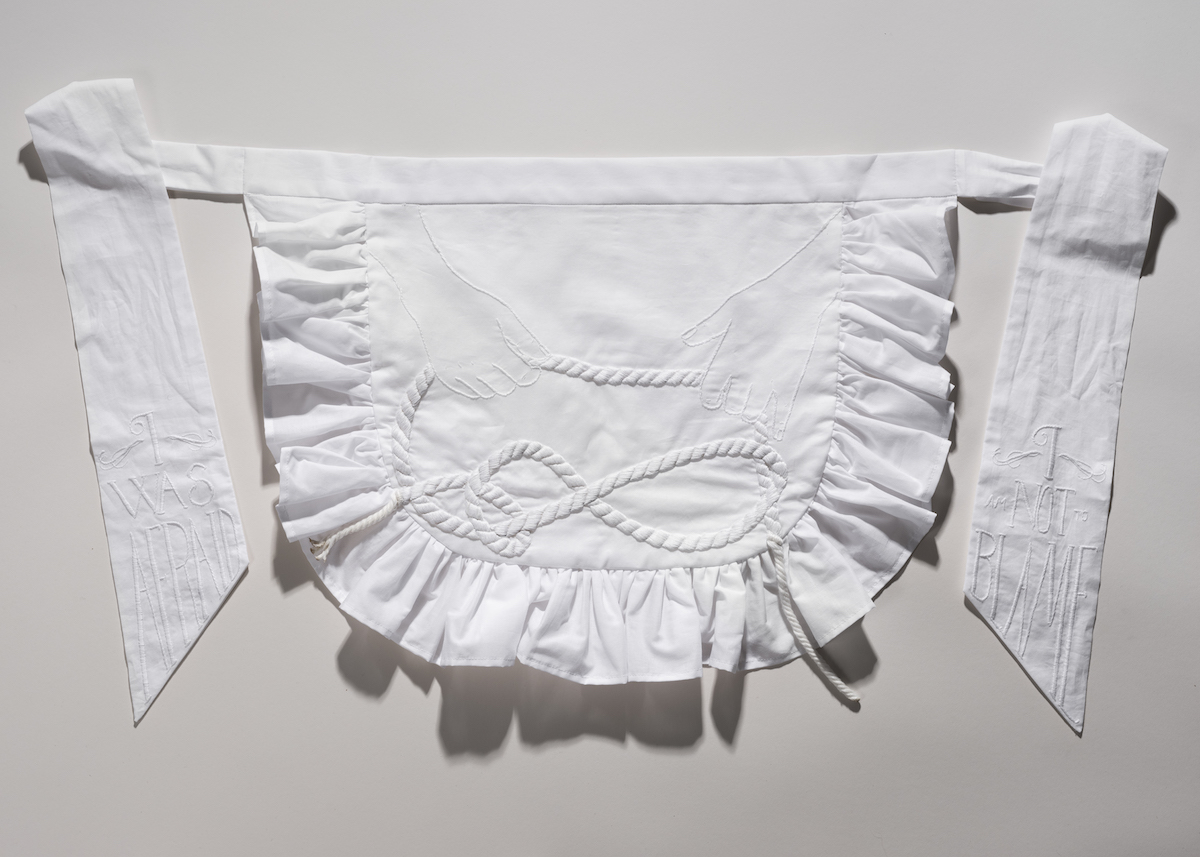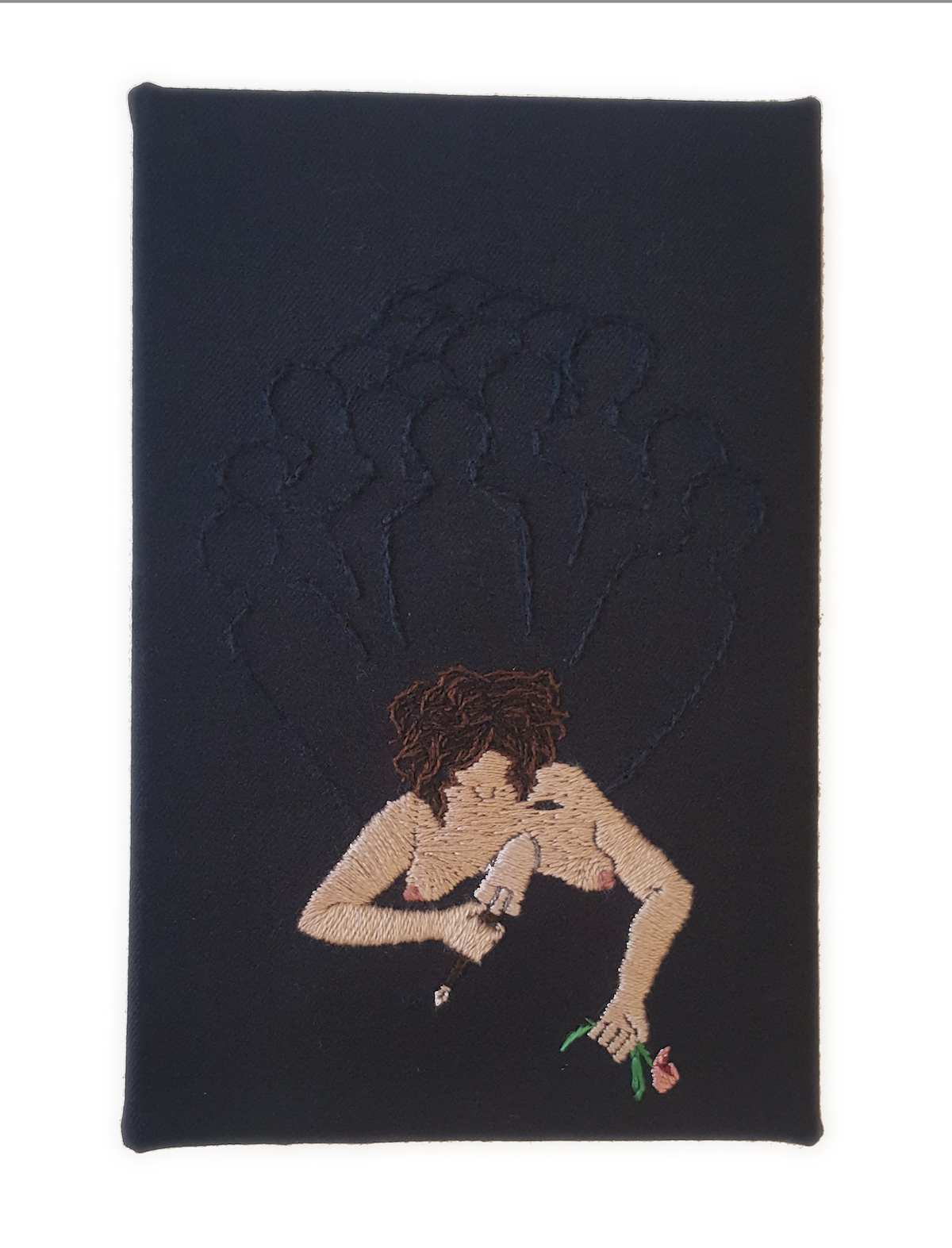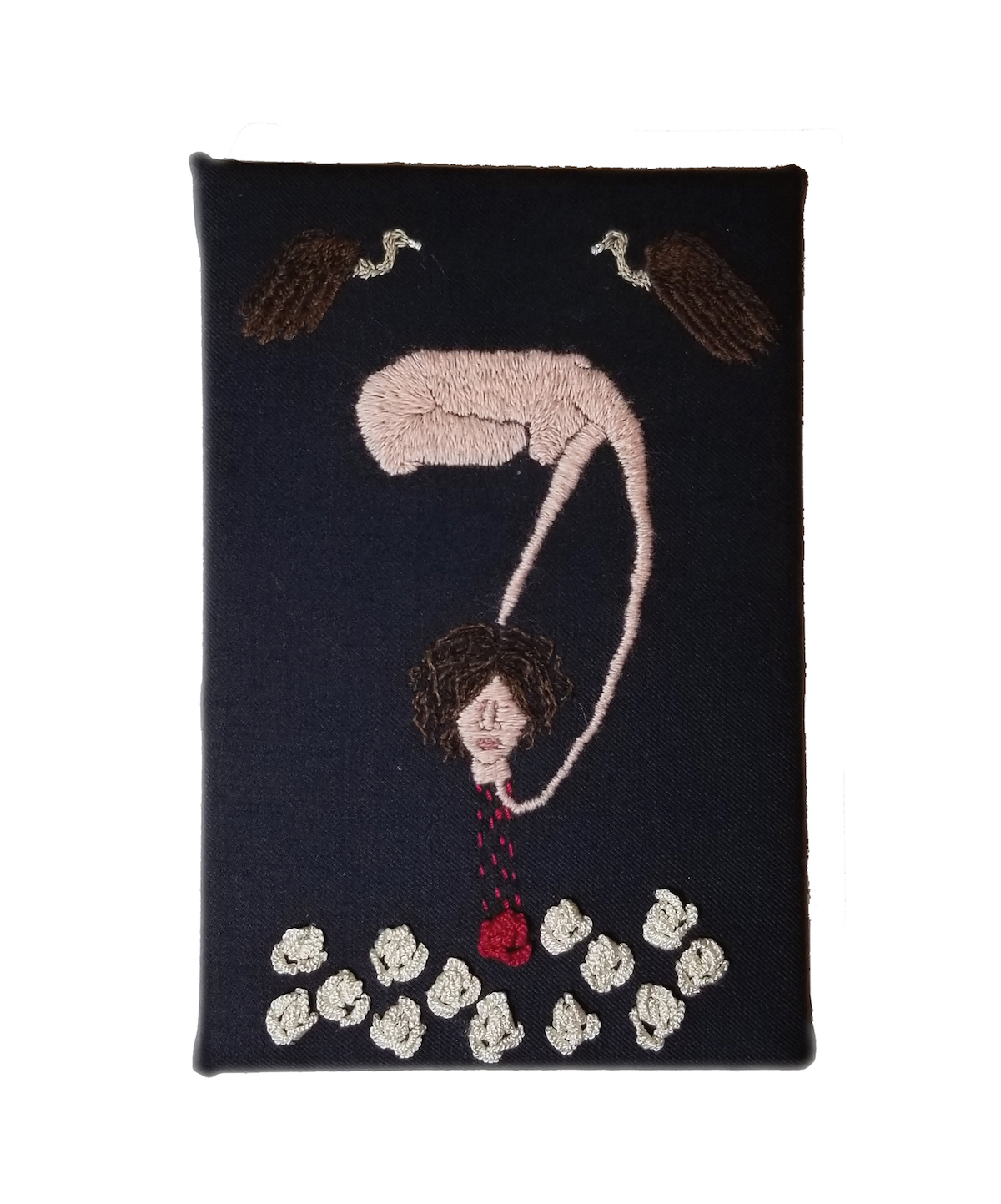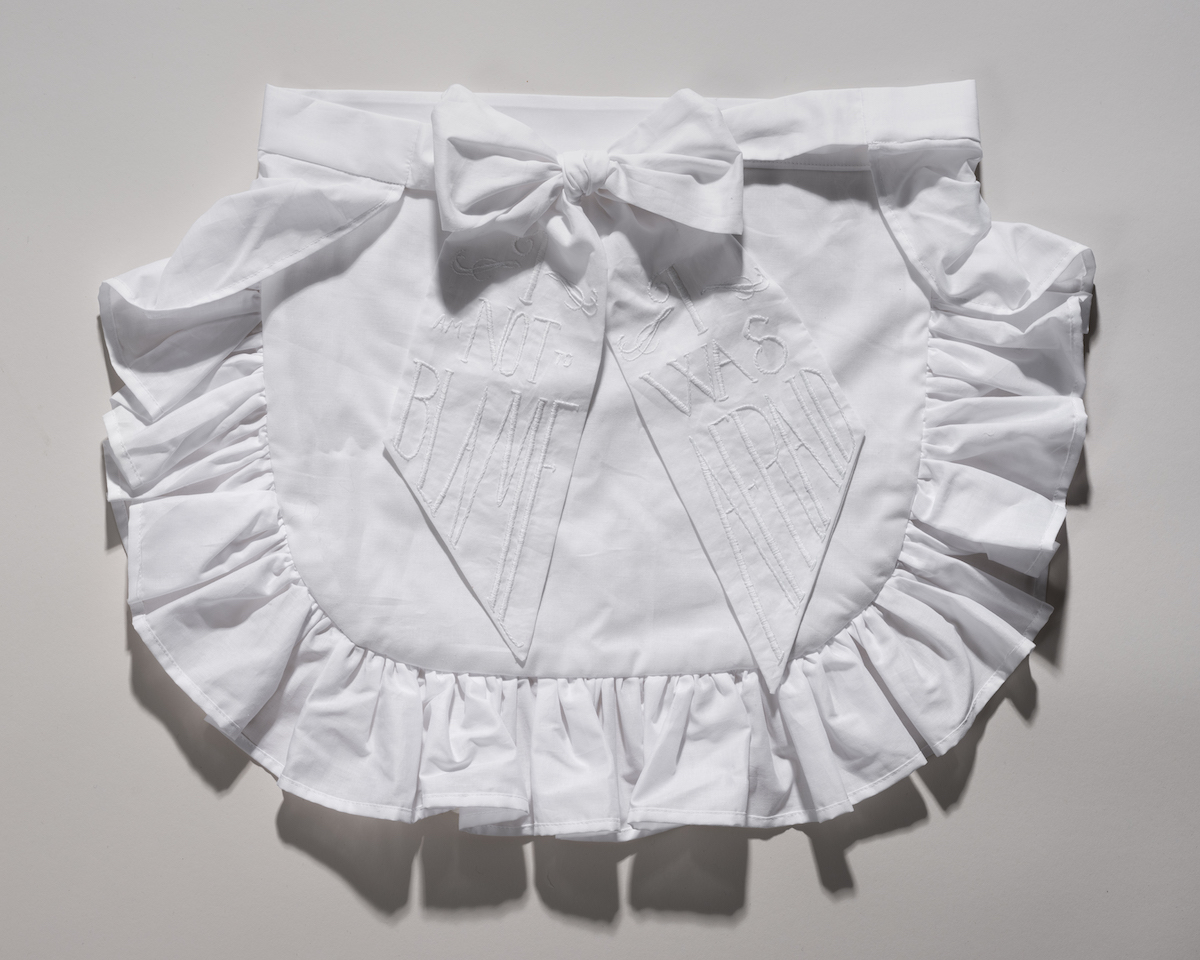When Heather Marie Scholl, a queer artist and activist based in Brooklyn, booked her first solo show at Virago Gallery in Seattle, she thought of it as a homecoming event. “I’m from Portland, I went to college in Olympia, Washington, and I have family in Seattle,” she tells me, “So for me, this show is about bringing this work home for the first time, which is kind of a stressful process.”
The Pacific Northwest endures a unique form of racism, says Scholl, dating back to the Oregon Territory’s legacy as an all-white settlement. “We were anti-slavery but no black people could come here,” Scholl explains. “At the same time, I think we are natural environmentalists, and environmentalism has gotten wrapped up into a liberal, Democrat identity. Feeling like you need to hold all those values while having been raised in a white-only space can create a lot of weird conflict, internally and externally.”
And although she grew up steeped in this conflict, Scholl began attending political protests when she was just 16 years old; her first anti-police brutality march was at age 18. But she had trouble finding her way off the sidelines and into more meaningful organizing roles.
“On the west coast, I spent a lot of time observing and trying to understand the layers of racism and white supremacy, but I wasn’t owning my personal strength in addressing those issues,” she says. Moving to New York at the nexus of Trayvon Martin, Eric Garner, and Mike Brown’s killers going free shifted something in her. “The power of that and where I was at in my life really forced me to start addressing how I’m going to use my voice.”
Now 33, Scholl has lived in New York for five years, following a three-year stint in the Bay Area. As a fine artist who has “always been drawn to the crafts of fashion,” she works primarily in the embroidery arts, and her solo show Reflections exhibits pieces from her two main bodies of work. The Self-Portrait Series functions as journal pages, exploring “what it means to be a woman in this world dealing with trauma and depression and identity.” Whitework, meanwhile, “examines white women’s roles in the establishment and maintenance of white supremacy through the embroidery tradition of white thread on white fabric.”
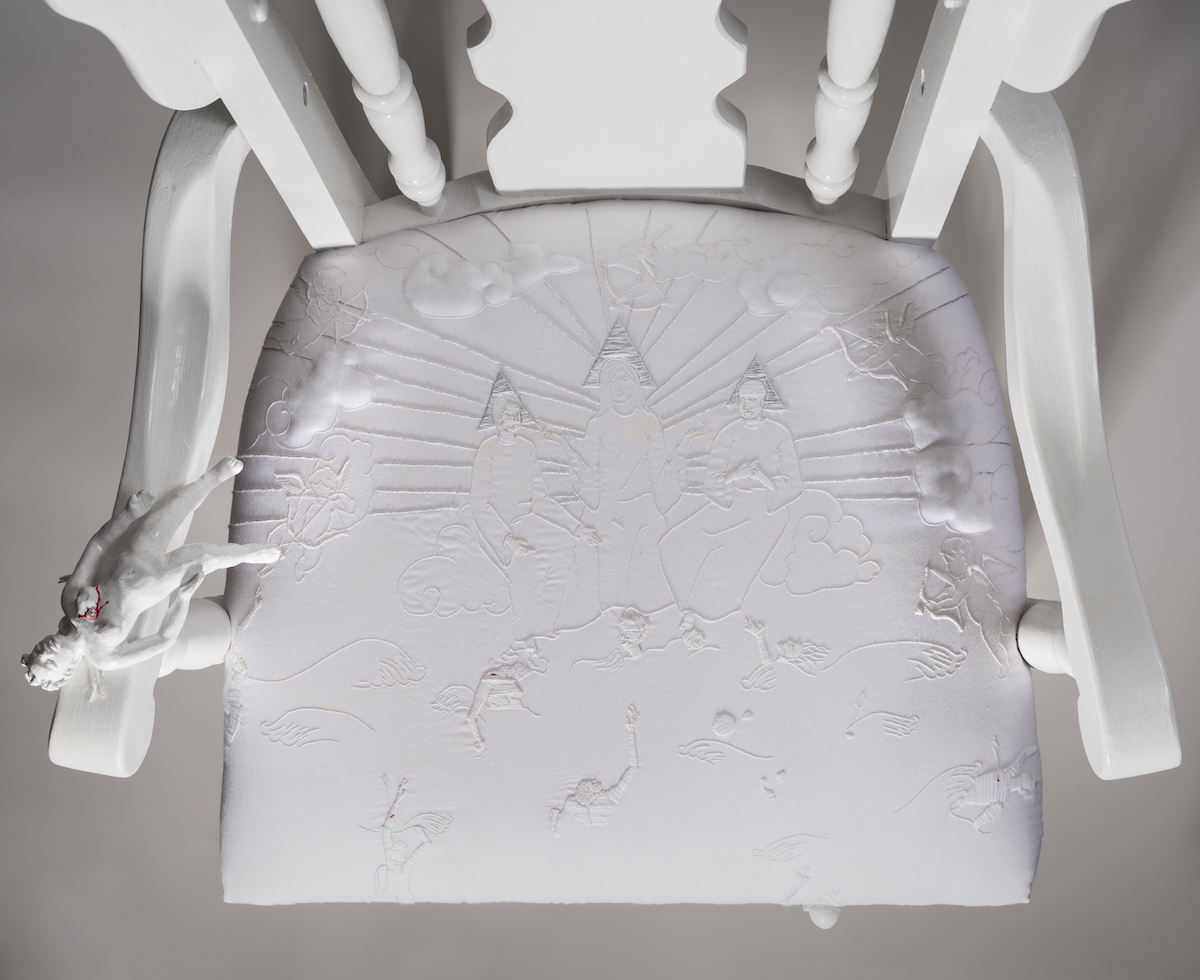
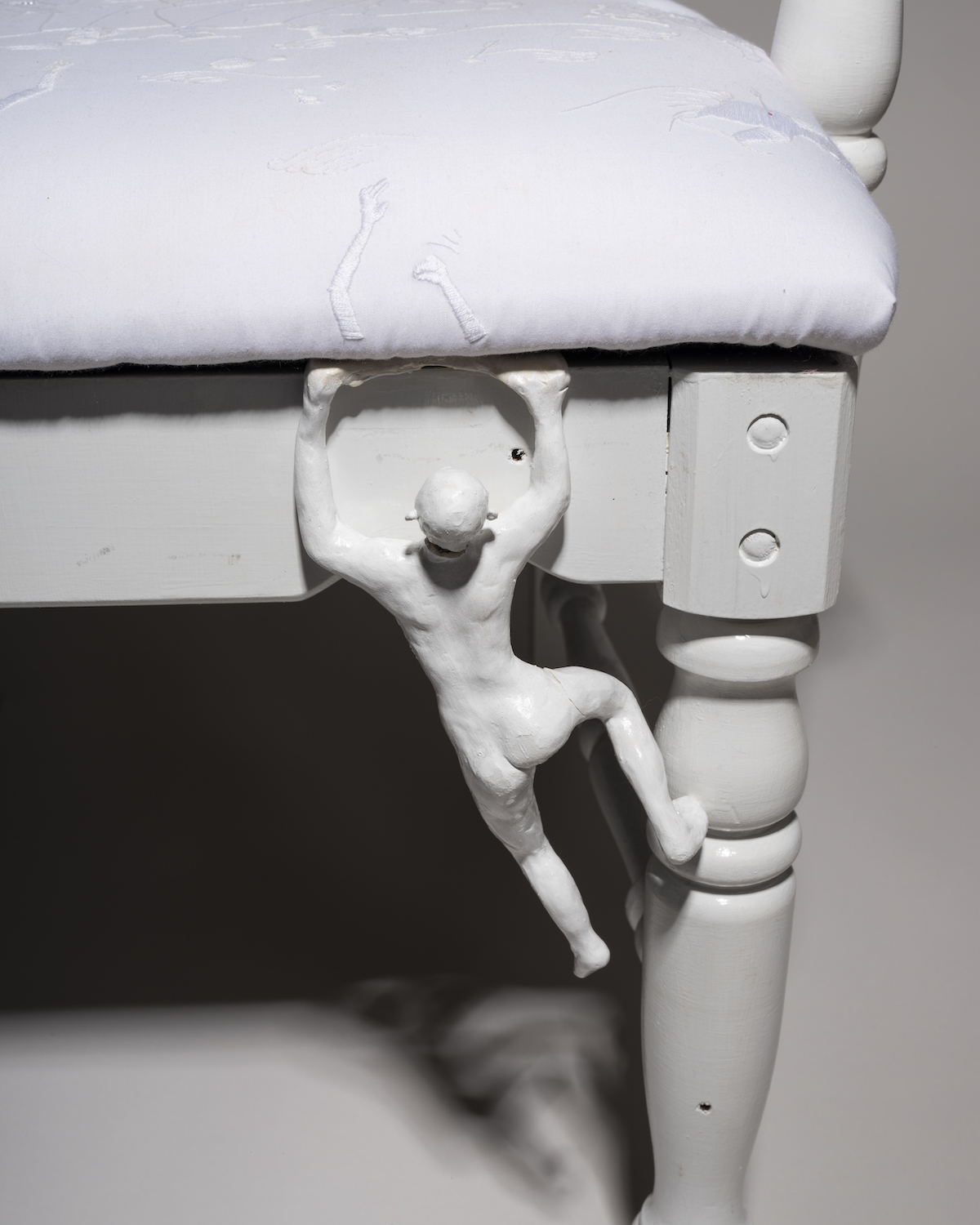
Scholl’s mission as an artist is to use personal investigating, accountability, and vulnerability as tools for change, and by modeling these concepts in her work, she hopes to open up space for others to do so as well, especially white women.
“Because of sexism and patriarchy, a lot of women’s history has been ignored and silenced, and that includes white women’s history in white supremacy and how we were active agents within that,” Scholl says. “We weren’t just bystanders, we weren’t just victims of white male power, but we were actively taking a role in segregation. We were actively taking a role in racial violence. I think we often try and relieve ourselves of responsibility by hiding under sexism and it’s not one or the other. We both experience oppression and perpetuate it. And I think that the more we can reveal those details, the more we can start changing it.”
Whitework’s most ambitious piece, titled “The Perfect (white) Woman,” is a female reimagining of Leonardo da Vinci’s “Vitruvian Man” stitched onto two layers of curtains. A beaded depiction of the woman’s body is stitched onto an outer solid curtain while an inner sheer curtain depicts several internal organs, each containing a different story of white womanhood. The uterus tells a particularly startling one: “It’s essentially a white woman raping a black man, and she’s holding a condom with a child coming out of the uterus.”
Scholl began “The Perfect (white) Woman” with the uterus, in fact, after reading about the history of slave owners’ wives sexually assaulting male slaves. “We always talk about white men assaulting black women at the time, but the reverse was also happening,” she explains. “And there was some indication that the development of condoms also coincided with this period, because the biggest risk was actually showing that you had sex with a black man, which a child would indicate.”
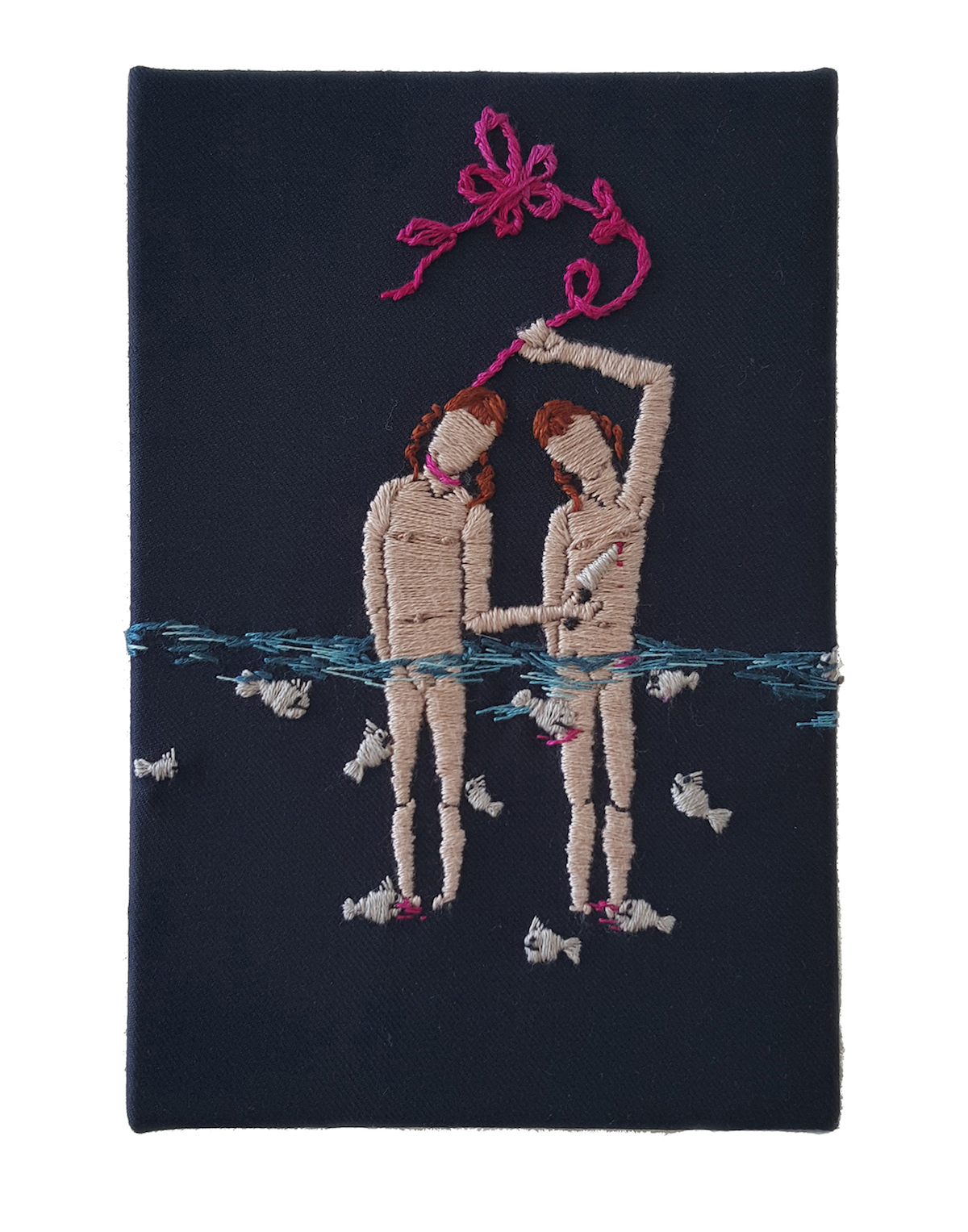
It’s a moving complication of white women’s fierce attachment to birth control as a form of sexual liberation. Says Scholl, “When we talk about sexual freedom and the [development] of safer sex practices, that was also happening alongside sexual assault and slavery and how we perceived black bodies as something to use.”
So what are spectators of Scholl’s art to do with these big feelings stirred up by her work? She’s thought of an answer for that, too. In conversation with Reflections, Scholl is staging her workshop Confront White Womanhood at the Puget Sound Theater on July 21st. Co-founded by Sophie Ellman-Golan, Deputy Head of Communications for the Women’s March, and Rhiannon Childs, Executive Director for the Women’s March Ohio Chapter, the workshop “asks white women to confront their complicity in white supremacy through historical context, personal storytelling, and brainstorming tangible steps to interrupt our own and others’ biases.”
The workshop presented last October at the Women’s Convention in Detroit, and given a room with a 140-person capacity, they wound up squeezing in around 200 people. So many were turned away that the team was asked to present again the next day in a larger space. Nearly 600 people showed up. Cosmopolitan called it “the most popular panel at the Women’s Convention.” Following successful expansions in New York, Ohio, and Michigan, Women’s March Seattle will co-sponsor the workshop along with Virago Gallery in conjunction with Scholl’s solo show.
Scholl hopes that by offering the workshop as a space to unpack the awareness initiated by the art, those emotions can move into something more productive. “So it’s not like that energy dissipates once people walk out the gallery doors, but how do we really harness that energy?” Scholl says. “Having the workshop coincide [with the show] is my first attempt at that, because it’s talking about the same thing, but through one-on-one conversations or group conversations, and then personal accountability, and then change in the real world.”
Reflections is currently on exhibit at Virago Gallery through August 6th, with a reception and artist talk on July 28th. Confront White Womanhood takes place at the Puget Sound Theater on July 21st, and tickets can be purchased here .
